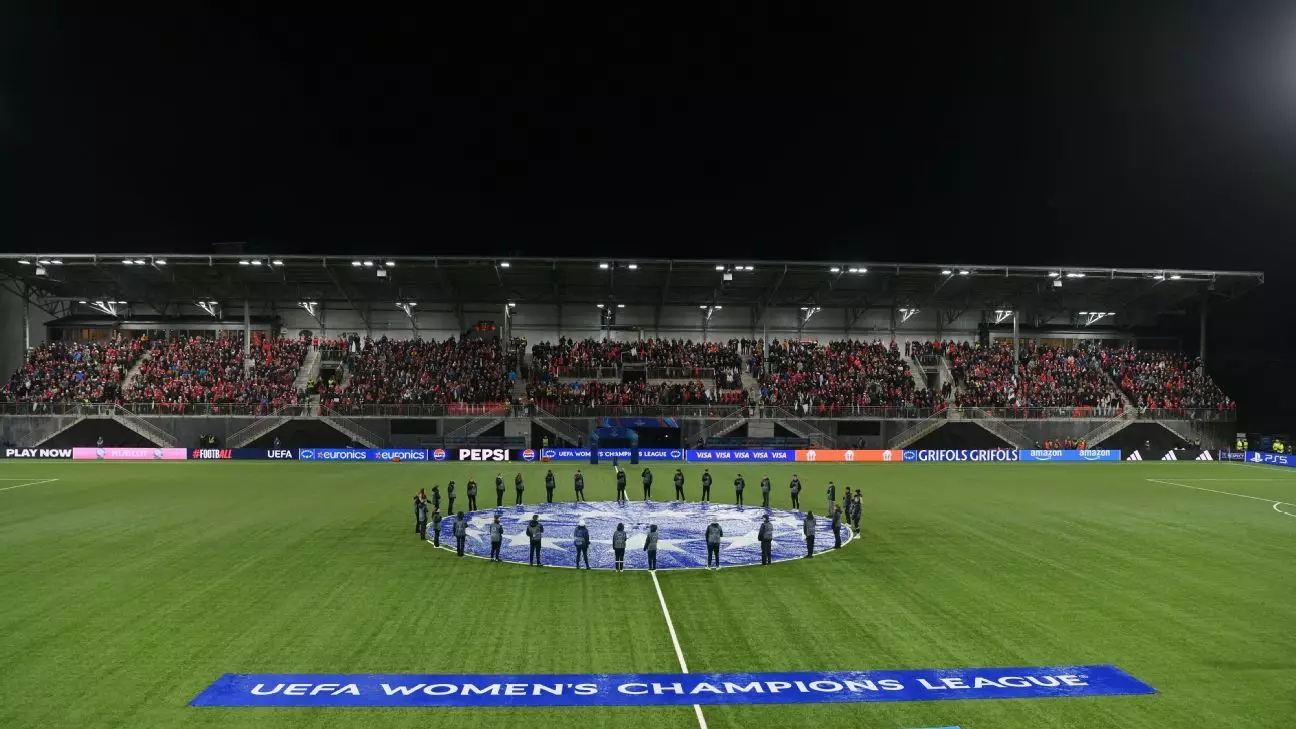In a significant development for freedom of expression in sports, Norwegian football club SK Brann recently emerged victorious in a ruling from the Court of Arbitration for Sport (CAS). This landmark decision annulled a €5,000 fine imposed by UEFA, following fans’ chanting of “UEFA Mafia” and displaying banners with the same phrase during a women’s Champions League match. The case underscores the tension between regulatory oversight in sports and the fundamental human right to free speech—a topic that resonates well beyond the confines of a football pitch.
Provocation or Commentary?
At the heart of this dispute lies a critical question: can passionate expressions by fans be classified as offensive, or are they legitimate critiques of the governing bodies of sport? UEFA’s disciplinary committee had deemed Brann’s actions as conveying “provocative messages of an offensive nature.” However, the CAS countered this assertion, recognizing that the term “UEFA Mafia” can be perceived as a satirical comment on the closed nature of UEFA’s operations. This ruling indicates a broader understanding of fan interactions—not merely as disturbances to public order but as reflective societal commentary.
UEFA’s Response: A Defensive Stance
In the aftermath of this ruling, UEFA’s position appears defensive. While it acknowledged the annulment of the fine, it reaffirmed its commitment to maintaining public safety at events, a stance that serves dual purposes: ensuring decorum and safeguarding its own institutional authority. UEFA’s insistence that freedom of speech cannot shield fans from offensive conduct suggests a deeper concern about setting precedents—a reflection of an ongoing struggle to balance regulatory measures with the personal rights of individuals.
Brann’s Perspective: A Victory for All
Brann’s president, Aslak Sverdrup, characterized the CAS ruling as an essential victory for freedom of speech not only in football but in society at large. His statement reveals an ethos that champions fan enthusiasm and critical commentary as integral to the sport’s culture. This position highlights the potential for sports to serve as a platform for voices that challenge established norms. To convey largely ignored sentiments on power and governance can reinvigorate the passion that fans bring to the game, enriching the collective experience of sport.
The Broader Implications
The ruling is significant beyond the immediate context: it highlights the evolving landscape of not just football but sports governance at large. As clubs increasingly engage with legal frameworks to defend their rights, we may witness a shift in how regulatory bodies approach fan expressions. This case also opens up necessary dialogue about the role of fans as stakeholders who should have the right to voice their opinions without fear of punitive actions. As the lines between commentary and provocation continue to blur, the boundaries of speech in the sports arena will likely be tested further in the coming years, compelling governing bodies like UEFA to adapt.
This ruling by CAS serves as a potential paradigm shift, indicating that fan expression can indeed shape the discourse surrounding institutional governance, pushing the boundaries of what is deemed acceptable in the world of professional sports.

